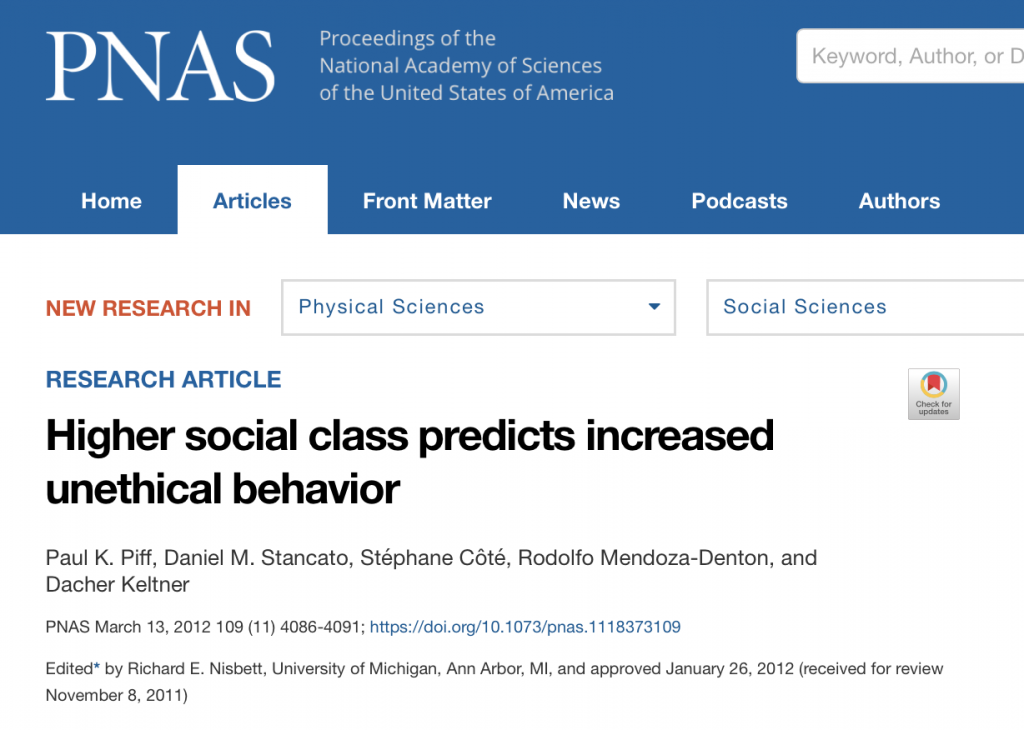Seven studies using experimental and naturalistic methods reveal that upper-class individuals behave more unethically than lower-class individuals. In studies 1 and 2, upper-class individuals were more likely to break the law while driving, relative to lower-class individuals. In follow-up laboratory studies, upper-class individuals were more likely to exhibit unethical decision-making tendencies (study 3), take valued goods from others (study 4), lie in a negotiation (study 5), cheat to increase their chances of winning a prize (study 6), and endorse unethical behavior at work (study 7) than were lower-class individuals. Mediator and moderator data demonstrated that upper-class individuals’ unethical tendencies are accounted for, in part, by their more favorable attitudes toward greed.
First of all, be careful about broad generalizations – stories with morals! – based on a relatively small number of studies.
Second, given that imbalances in wealth and power are core issues in many of our big “Approaches” we are reviewing this semester (population, markets, institutions… so far) what does this imply for ethical decisionmaking when it comes to the environment? In other words, fewer, richer, more powerful people are in control of environmental decisionmaking…
Third, it’s fun to pick on rich people.
Source: Higher social class predicts increased unethical behavior (PNAS)
